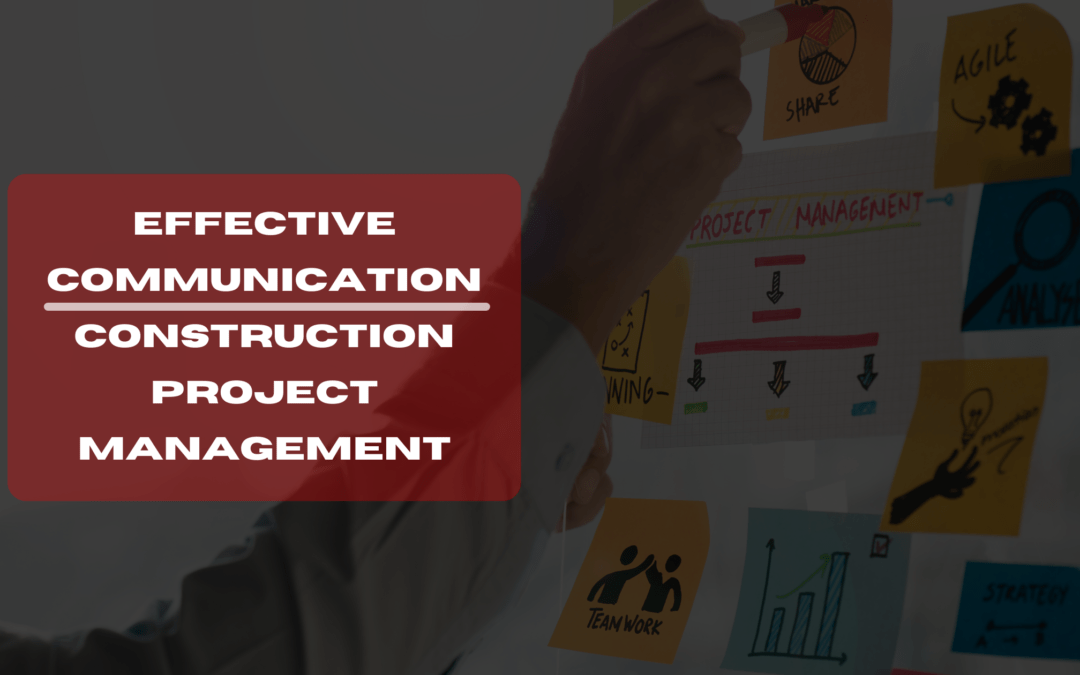The Vital Role of Effective Communication in Construction Project Management
In the dynamic world of construction project management, successful project outcomes rely heavily on one often-underestimated factor: effective communication. Construction projects are complex endeavors involving numerous stakeholders, intricate plans, and tight schedules. In this article, we’ll explore why effective communication is essential and discuss strategies to overcome common communication challenges in construction projects.
Table of Contents
Why Effective Communication Matters
Effective communication serves as the bedrock of success in construction project management. Here’s why it’s of paramount importance:
- Clarity and Understanding: Construction projects involve detailed plans and specifications. Effective communication ensures that project objectives, plans, and expectations are clearly conveyed to all team members. This clarity helps prevent misunderstandings and reduces the risk of errors or rework, ultimately saving time and resources.
- Team Coordination: Construction projects entail a multitude of stakeholders, from architects and engineers to contractors and subcontractors. Effective communication fosters collaboration and ensures that everyone is aligned with the project’s goals and timelines. It promotes synergy among team members and minimizes conflicts.
- Problem Resolution: In construction, unexpected issues and changes are common. Effective communication channels allow quick identification and resolution of problems. This proactive approach can save time and resources, preventing minor issues from snowballing into major setbacks.
- Risk Management: Open and transparent communication enables the identification and mitigation of risks early in the project. This proactive approach can save time and resources, as addressing risks before they escalate is far more cost-effective than dealing with the aftermath.
- Client Satisfaction: Communication with clients is vital for understanding their expectations and keeping them informed about project progress. Satisfied clients are more likely to recommend your services and provide repeat business. Effective communication builds trust, which is invaluable in the construction industry.
Overcoming Common Communication Challenges
In construction projects, various challenges can hinder effective communication. Project managers can employ several strategies to overcome these challenges:
- Diverse Stakeholders: Recognize the diverse backgrounds and expertise of stakeholders. Tailor communication methods and terminologies to ensure everyone understands. Use visual aids, diagrams, and presentations when necessary to convey complex information clearly.
- Geographic Dispersion: In large construction projects, teams may be spread across different locations. Utilize digital collaboration tools, regular video conferences, and project management software to bridge geographical gaps. Virtual collaboration can be as effective as in-person meetings when managed correctly.
- Language Barriers: Multilingual teams are common in construction. Use interpreters or provide multilingual documentation to ensure everyone comprehends important information. Consider hiring multilingual supervisors or foremen who can bridge language gaps on-site.
- Information Overload: Avoid overwhelming team members with excessive information. Prioritize and deliver only essential messages and updates. Use a central repository for project documentation to avoid scattered information sources.
- Technology Challenges: Ensure that communication tools and systems are reliable and user-friendly. Provide training if necessary to ensure all team members can use them effectively. Invest in up-to-date technology to facilitate efficient communication.
- Cultural Differences: Be sensitive to cultural norms and communication styles. Foster an inclusive environment that respects and integrates different cultural perspectives. This can enhance teamwork and reduce conflicts.
- Conflict Resolution: Establish clear protocols for addressing conflicts and disputes. Encourage open dialogue and consider mediation when necessary to maintain positive working relationships. Effective conflict resolution can prevent communication breakdowns.
- Feedback Mechanisms: Implement regular feedback mechanisms such as surveys or meetings to gauge the effectiveness of communication and make necessary improvements. Encourage team members to provide feedback on their communication experiences.
By addressing these challenges proactively, project managers can foster effective communication, enhancing project success and reducing the risk of misunderstandings and delays in construction projects. Effective communication ensures that everyone is on the same page, working cohesively, and striving toward common project goals. It’s not just a tool for project management; it’s a critical driver of success in the construction industry.
“In teamwork, silence isn’t golden, it’s deadly.” — Mark Sanborn
Remember, in construction, it’s not just about bricks and mortar; it’s also about the people behind the scenes, working tirelessly to ensure that every piece falls into place. Effective communication is the glue that holds it all together, making sure that everyone’s efforts contribute to the successful completion of the project.
This article is a testament to the crucial role of effective communication in construction project management. It serves as a reminder that construction success is not solely about blueprints and materials; it’s also about the people who bring those plans to life through clear and effective communication.

